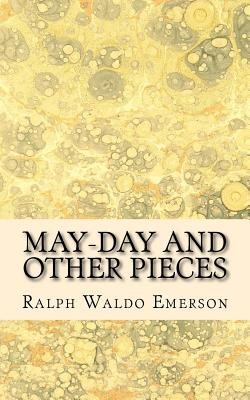
- We will send in 10–14 business days.
- Author: Ralph Waldo Emerson
- Publisher: CreateSpace Independent Publishing Platform
- Year: 2016
- Pages: 118
- ISBN-10: 1539512711
- ISBN-13: 9781539512714
- Format: 12.7 x 20.3 x 0.6 cm, minkšti viršeliai
- Language: English
- SAVE -10% with code: EXTRA
Reviews
Description
Collection of poems by the American essayist, poet, and leader of the Transcendentalist movement in the early nineteenth century. He is often identified as the first writer to develop a uniquely American literary style and vision, rather than following in the footsteps of his contemporaries who were strongly influenced by their British cultural heritage. He was considered one of the great orators of the time. His outspoken, uncompromising support for abolitionism later in life caused protest and jeers from crowds when he spoke on the subject. He formulated and first expressed the philosophy of Transcendentalism in his essay Nature (1836) which was the first significant work to establish this new way of looking at the Americas and its raw, natural environment.
- Author: Ralph Waldo Emerson
- Publisher: CreateSpace Independent Publishing Platform
- Year: 2016
- Pages: 118
- ISBN-10: 1539512711
- ISBN-13: 9781539512714
- Format: 12.7 x 20.3 x 0.6 cm, minkšti viršeliai
- Language: English English
Collection of poems by the American essayist, poet, and leader of the Transcendentalist movement in the early nineteenth century. He is often identified as the first writer to develop a uniquely American literary style and vision, rather than following in the footsteps of his contemporaries who were strongly influenced by their British cultural heritage. He was considered one of the great orators of the time. His outspoken, uncompromising support for abolitionism later in life caused protest and jeers from crowds when he spoke on the subject. He formulated and first expressed the philosophy of Transcendentalism in his essay Nature (1836) which was the first significant work to establish this new way of looking at the Americas and its raw, natural environment.


Reviews